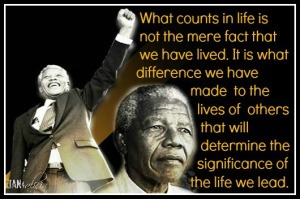I have been very fortunate to be afforded many wonderful social and educational opportunities within both secular and religious communities in my life.
One particularly fortuitous encounter was at the first talk which I gave for the Philosophy Matters group in Melbourne on Existentialism and Meaning in Life where Ken Young and I met and exchanged a few ideas.
Ken and I connected immediately over the benefits from actively considering one’s personal take on meaning in life as an integral part of living a good, happy life.
I’m especially pleased to have embraced the offer from Leslie Allan, the Philosophy Matters organizer, to present back in September 2020 – deep into Melbourne’s lockdowns – as we have over the past few years had the chance to not only work together but significantly deepen our friendship as well.
At my first talk for Philosophy Matters, I also had the good fortune to meet Usha Sista who has also become a close friend and happily a frequent collaborator as well on matters philosophical, starting with our first joint talk on The Good Life in November 2020.
Within the energetic ‘Melbourne Circle’ of community philosophers, which extends to Queensland, Sydney, Canberra, Perth, Singapore, Stateside, the UK and elsewhere at times, more than a few good friendships, shared exploration of varied philosophical matters, and strong community ties have been forged.
Along with many other participants who do likewise, I greatly appreciate the sustained efforts, social and philosophical leadership of Les Allan, noted briefly here, and David Miller the convener of the Agnostics Group, Atheist Society, Sea of Faith in Australia (SoFiA) and Existentialist Society for a remarkable 50 years.
Ken and I presented on Morality and Human Flourishing last month at the Agnostics Group.
Our theme was (and remains) that people making more moral choices increases human flourishing. You can view the presentation and read more about this possibly bold and surely important claim with lots of supporting material and further references on the Aspirationists website hosted by my valued friend Ken.
Do you agree that morality can and does reduce suffering and enhance human flourishing?
Would you like to connect with the philosophy community, wherever you are, to help drive change, share ideas or just listen and enjoy the company of friendly, reflective and passionate others?
If so, please do reach out, visit the aspirationists.com website, join the Meetup groups for Philosophy Matters, the Existentialist Society, and the Philosopher’s Bazaar, which I’ve been facilitating with Usha, and comment below to be part of the conversation.
https://www.meetup.com/philosophy-matters/
https://www.meetup.com/existentialist-society
